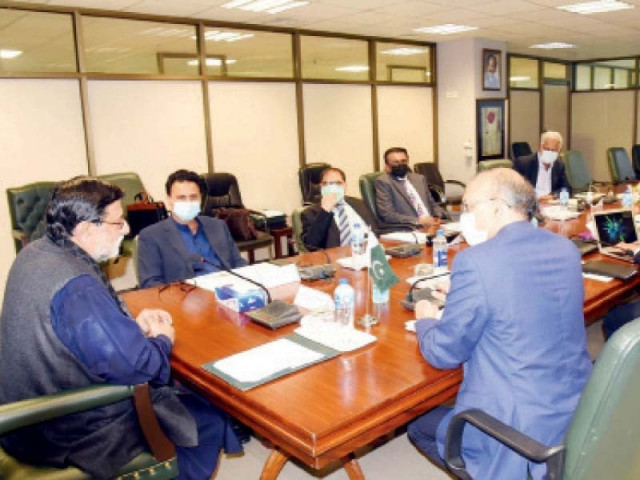HEC privatisation in final stages
Privatisation Commission mulling options for determination of reserve price for bidding

The privatisation of Heavy Electrical Complex (HEC) has entered final stages, revealed the Privatisation Commission. In a statement on Monday, the commission said that at present different options for the determination of reserve price for the bidding of HEC shares were being considered by the Privatisation Commission, before the bidding process was initiated with approval of the federal cabinet.
It mentioned that a breakthrough had been achieved in several pending matters related to employees and settlement of liabilities of financial institutions.
“Privatisation Commission is ensuring that no further liabilities are added to the balance sheet of HEC while the Ministry of Industries and Production is also playing its positive role to retain credit rating of the entity,” the statement said.
“In addition, the Power Division agrees that no adverse action is taken against HEC by any power distribution company.” The settlement of longstanding dues of KhyberPakhtunkhwa Economic Zones Development and Management Company was another milestone, which had been achieved with the cooperation of stakeholders concerned, the commission said.
The privatisation of HEC has generated interest from a number of investors. Bidders had been prequalified by the commission and a pre-bid meeting was held in August 2021.
It added that most of the issues raised by the prequalified bidders in the meeting were addressed satisfactorily. The commission expects the privatisation of HEC to lead to the creation of positive sentiment for the overall privatisation programme that is currently underway.
HEC is a governmentowned entity under the administrative control of State Engineering Corporation, the shareholding of which is fully owned by the Ministry of Industries and Production and the federal government.
HEC started its commercial operations in 1998. Its prime business is to manufacture high-voltage electric transformers used by power distribution companies along with services for testing, repair and onsite commissioning of transformers.
It is located in the Hattar Industrial Estate, Haripur on land leased by the KhyberPakhtunkhwa Economic Zones Development and Management Company for a period of 99 years.
“Many other privatisation transactions of larger-ticket sizes and quantum are also queued up, which include two re-gasified liquefied natural gas (RLNG)-based power plants, Pakistan Steel Mills, Guddu Power Plant and Nandipur Power Plant,” the statement said.
“The bidding for HEC is likely to be held within this quarter after the approval of reserve price by the Cabinet Committee on Privatisation and the cabinet.” Privatisation is a very thorough process under which extensive due diligence and due care is involved in each phase.
Starting from the financial, legal and technical analysis of the entity being privatised to its marketing, inviting interest of potential bidders, reaching out to potential investors and most importantly clearing the encumbrances could impact the transaction.
Most of the entities offered for privatisation by the ministries are suffering losses and have complex financial and legal issues, which require extensive efforts of the Privatisation Commission. Earlier in September, the Privatisation Commission board recommended to put off its decision on the reserve price for the strategic sale of HEC.
The commission board took up a summary for the approval of Rs1.143 billion as the minimum price for selling HEC but the matter was deferred after the board found that the privatisation ministry had not sought final endorsement of the transaction committee.
Earlier, an attempt to privatise HEC was made in 2014, however, due to poor response, the process was abandoned in December 2014. In the last attempt to privatise HEC, which was made in March 2015, only one party deposited the earnest money out of three parties and the process became highly controversial.



















COMMENTS
Comments are moderated and generally will be posted if they are on-topic and not abusive.
For more information, please see our Comments FAQ